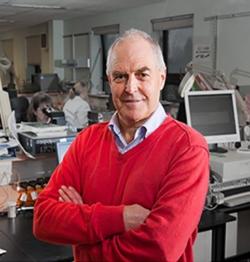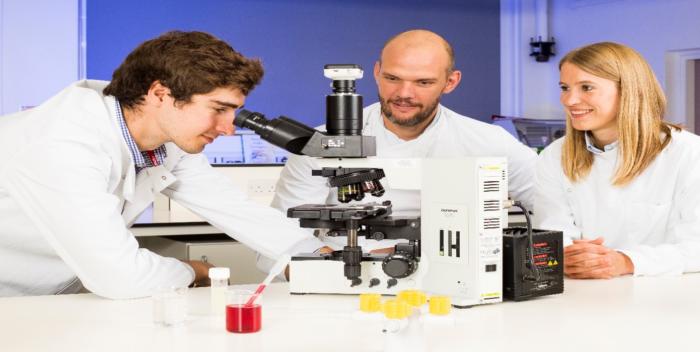Recognising the potential of SMEs in combating AMR

By Ian Staples, founder and chief executive of British biotechnology company Matoke Pharma. Ian discusses the need to support the vital contribution small and medium sized enterprises (SMEs) make to the fight against anti-microbial resistance.
The global threat posed by anti-microbial resistance (AMR) cannot be understated. Recent studies have concluded that over 10 million lives could be lost to superbug infections by 2050 if we do not bring new antibiotics to market (1).
The World Health Organisation, the British Government and numerous global institutes have consistently warned that the world is approaching an antibiotic/antimicrobial crisis as pathogenic bacteria rapidly evolve to resist existing medical solutions (2). To confront this, and turn the tide in the war against superbugs, it is essential the UK addresses the funding and regulatory barriers preventing new antibiotics getting to market.
Challenges in accessing funding
As the CEO of an SME working with British universities and NHS Trusts negotiating the mechanisms to develop Reactive Oxygen technology as a new antimicrobial (3), securing funding is a full-time challenge. It is encouraging to see the Government commit to an array of funding schemes focused on AMR. Having spent more than a year negotiating to achieve grant support however, we have experienced first-hand the unnecessary complexities inherent within current funding processes.
Recent policy towards investment in technological innovation has focused on early-stage research, development and late stage support, which has left a chasm between the two. This prevents many SMEs from taking forward innovative technologies. At Matoke, we invest considerable resources in producing data on our innovations before applying for grants. So we’ve experienced the significant strain the extensive product development journey from research and invention through to full regulatory approach and market entry has on an SMEs' resources.
This is not only detrimental to individual businesses as the drivers of innovation, but also delivers a poor return on investment for the government and hinders the transformation of healthcare outcomes. To overcome this, investment strategies of each funding body must recognise the need for transitional support, particularly within the pharmaceutical sector where the complexities of product development take a heavy toll on SMEs.
Recent government announcements such as the Accelerated Access Review, which supports innovative products across the NHS, failed to prioritise AMR. Additionally, many schemes such as the UK-China collaboration fund reflect the UK’s commitment to addressing AMR, but fail to recognise that SMEs lack the capacity and flexibility to suddenly adapt their projects to fit within the scope of the grant. Ultimately, the process for grant funding is too fragmented, too complex and only offers stop-start investments. These issues combined have held back the development of new antibiotics over the past 30 years.
To address these challenges, urgent government action is required. We would call on the Government to simplify and harmonise the eligibility criteria around intellectual property and create dedicated points of contact at UK Research and Innovation (UKRI) to be assigned to individual companies. The government should also make combating AMR a key area of focus for stage 3 of the Industrial Strategy Challenge Fund.

The Regulatory Hurdles
To be clear, I am an advocate for a robust regulatory system that supports patient safety and medical product efficacy. Whilst supporting these requirements, I believe government can do more to support SMEs to develop innovative technologies by removing the unnecessary hurdles that stifle innovation and add substantially to the cost and timescales for new product development.
Some of the barriers I, and no doubt many other SMEs, have faced include slow administration processes and becoming bogged down in regulatory reviews and regulatory body advisory meetings. This results in new products taking months after they’ve passed the regulatory approval process to become part of the NHS supply chain. A delay of such scale is simply unjustifiable given we face an antibiotic/antimicrobial crisis.
I support a future where government and industry are partners in bringing new products to market, with joined-up development programmes that accelerate the availability of new drugs and medical devices. To achieve this, the Government and UKRI must ensure that regulation and funding programmes are better aligned (4) and take into account the many hoops SMEs need to jump through to progress.
The 2018 AMR strategy provides the ideal opportunity to deliver a comprehensive plan to provide end to end support to speed up the R&D process and incentivise the development of innovative new technologies. SMEs will become a vital partner with Government to effectively tackle one of the greatest health challenges of our time.
References
- European Centre for Disease Prevention and Control/European Medicines Agency. Joint Technical Report: The bacterial challenge: time to react. 2009.
- Brian Simpson. “Just the Beginning” UN adopts AMR declaration, 2016, available at: https://www.globalhealthnow.org/2016-09/just-beginning-un-adopts-amr-declaration
- Surgihoney RO ‘Overview’, 2018, available at: http://www.surgihoneyro.com/overview
- PWC. Antimicrobial resistance, The State of the Nation report on UK R&D 2016
.png)
.png)